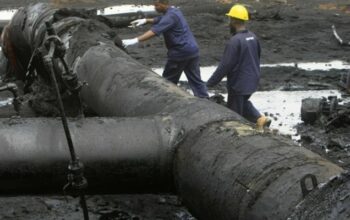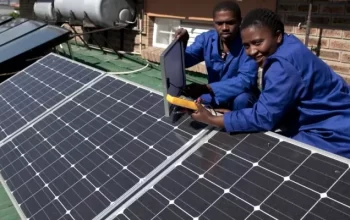Africa’s natural gas export infrastructure has the potential to be re-purposed to transport hydrogen across Africa and to Europe
The abundance of renewable resources that Africa possesses along with a developed renewable energy sector where renewable power can be produced at low cost – a key ingredient for generating low-cost green hydrogen – gives Africa a clear competitive edge as a clean hydrogen hub.
Africa is also geographically well placed to serve both European and Asian markets and is an established export route. With oil and gas frequently exported from Africa to Asia, Europe and the rest of the world, exporters of hydrogen may be able to leverage these established routes to drive down some transportation / export costs. Africa’s natural gas export infrastructure has the potential to be re-purposed to transport hydrogen across Africa and to Europe via the natural gas pipelines connecting North Africa to mainland Europe.
Africa-Europe route
Foreign government support / buy-in for this export route from Africa to Europe exists at the EU level – the EU Hydrogen Strategy refers to the importation of renewable hydrogen from North Africa to meet projected hydrogen demand in the context of its 2050 carbon-neutral goals. European bodies such as the FCH JU – a private-public partnership aiming to encourage development in the hydrogen industry – emphasise this goal.
EU communications call for investment to develop clean hydrogen production across North Africa. EU support could be available for hydrogen projects in Africa in connection with various funding / support schemes including the ‘Connecting Europe Facility’, the ‘Neighbourhood, Development and International Cooperation Instrument’ and other more development-focused platforms.
The European Bank for Reconstruction and Development has already begun working with governments across the continent – notably in Egypt and Morocco – to study the challenges in deploying a hydrogen economy.
Following this trend, Germany is in the process of developing a production and import chain for renewable hydrogen in a joint project with Western Africa countries.
Germany and Morocco have signed an agreement to develop the production of green hydrogen and further R&D in the space, pursuant to which Morocco is scheduled to build Africa’s first large-scale green hydrogen production plant – the Power-to-X project. Morocco has also signed a declaration of cooperation with Portugal to develop a partnership in the green hydrogen sector.
The Italian government is seeking to import clean hydrogen from North Africa given the pipeline connections, including the Trans-Mediterranean Pipeline, and the lower cost of producing renewable power in Northern Africa.
Africa is also geographically well placed to serve both European and Asian markets and is an established export route
Development of Africa hydrogen sector
Certain countries in Africa are already on the way to creating a hydrogen sector, showing strong government support for the development of the sector – Morocco and South Africa being notable early movers. Morocco has set up a National Hydrogen Commission and is developing its national roadmap for hydrogen; Morocco is also part of the latest CertifHy pilot phase – an EU-wide hydrogen guarantees of origin pilot scheme. The South Africa government has published its hydrogen strategy / roadmap, and with its abundance of wind and solar energy production, South Africa is a natural candidate for becoming a green hydrogen exporter.
In South Africa, as the first phase of the government’s ‘Platinum Valley’ initiative, Anglo American announced a collaboration agreement spearheaded by South Africa’s Department of Science and Innovation with ENGIE, the South African National Development Institute and Bambili Energy to complete a feasibility study to develop a ‘Hydrogen Valley’ in the platinum group metals-rich Bushveld geological area.
The South Africa government also announced a fuel cells hub project in South Africa which is currently undergoing an environmental impact assessment.
The African Hydrogen Partnership, a pan-African association dedicated to the development of a clean hydrogen economy in Africa, will be helpful in considering a roadmap to the development of hydrogen at an Africa-wide level, and in considering macro issues across the continent – such as transportation networks. In the first meeting of the African Hydrogen partnership in Ethiopia, the development of green hydrogen for export to Europe and Japan was discussed.
Development of regulation and investment
The development of regulation across Africa to effectively regulate the hydrogen supply chain – production, transportation, storage etc. – and to provide appropriate comfort and incentives for financiers, developers and first-movers, will be key to unlocking Africa’s potential in the hydrogen economy. Regulation is particularly important at all levels given the vast amounts of capital required to invest at the scale needed to bring down costs and prove-up the technology.
Capital is already being invested – Sasol and Toyota South Africa Motors, for example, have, in South Africa, partnered to develop a green hydrogen mobility ecosystem, with a pilot project focusing on fuel cell powered long-haul trucks for use in one of South Africa’s main freight corridors. Anglo American is developing a 300 tonne hydrogen fuel cell powered truck to use in its mining operations in Mogalakwena, South Africa, aiming eventually for usage at its other mining sites.
We anticipate that other mining and energy companies will look to develop hydrogen fuel cell powered heavy vehicles as a way to decarbonise their operations. Given standard electric battery limitations, hydrogen fuel cells will likely have the upper hand in this race. With growing interest in every aspect of the hydrogen sector, regulation is paramount.
The low-carbon future of Africa
The push for decarbonisation and with the global green hydrogen market expected to grow from US$2.14 billion in 2021 to US$135.73 billion by 2031, green hydrogen is proving particularly attractive worldwide, and especially so for Africa.
With its vast resources of sun, wind and coastline, Africa is in prime position to sustainably harness these resources to meet its domestic growing demand for energy and accelerate Africa’s energy transition – and with certain regions’ potential to be net exporters of green hydrogen – also contribute to the energy transition of its neighbours in Europe and further afield.
![]()




